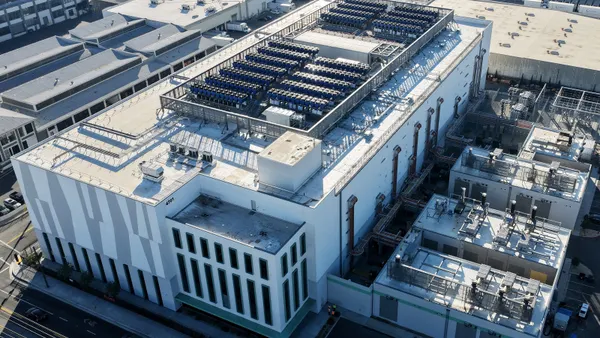Dive Brief:
- Several parties have file initial briefs with the Supreme Court advocating for federal regulators' authority over demand response, including FERC's own argument which hinged in part on the idea that demand response programs “unquestionably confer significant benefits on wholesale markets, including lower rates.”
- PJM Interconnection, the grid operator at the center of the controversy, and demand response provider EnerNOC, also filed briefs in support of FERC's authority.
- The court decided to review a DC Circuit Court's 2014 decision to strike down Order 745, which gave FERC jurisdiction to regulate demand response in wholesale energy markets, despite the objections from traditional generators.
Dive Insight:
For more than a year now, the demand response industry has been watching the court fight over FERC Order 745 play out. And while oral arguments and an ultimate decision are still months away, the debate has entered a new phase with supporters of FERC's authority filing initial briefs with the high court.
FERC defended its authority, with the Solicitor General writing on the commission's behalf: “By exercising authority over wholesale demand-response programs, FERC can ensure that a practice that occurs in wholesale markets, and has been widely recognized as tremendously important to the efficient functioning of those markets, will continue to provide benefits to consumers and the economy and is deployed in a way that results in just and reasonable wholesale rates and a reliable electricity system.”
“That plainly is a reasonable interpretation of FERC’s statutory authority entitled to deference,” the Solicitor General concluded.
FERC's argument also touched on the economic benefits of demands response, widely seen as lowering prices, saving consumers billions of dollars, and reducing peak demand:
“Given that demand-response programs unquestionably confer significant benefits on wholesale markets, including lower rates, there is no defensible justification for concluding that the [Federal Power Act] nevertheless altogether excludes the programs from wholesale markets or FERC regulation.”
The Electric Power Supply Association, the trade group for competitive generators, argued and won in District court that that demand response is solely an issue for retail markets because retail users are being asked to reduce their retail consumption.
PJM Interconnection, the market where demand response was challenged, also filed a brief and told the Justices, that last summer it had registered over 8,000 MW of demand response. “This is roughly comparable to the entire peak consumption of Washington, D.C. and its Maryland suburbs,” the grid operator said. It argued that demand response was not a retail sale, and FERC's authority should stand.
Demand response provider EnerNOC filed as well, telling the court that without demand response participation, wholesale markets “will not function effectively: Competition will be constrained; and prices will be higher.”














